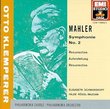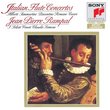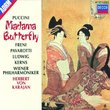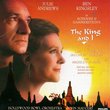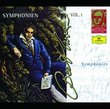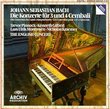| All Artists: Schnittke, Mahler, Borodin String, Berlinsky Title: String Quartet 3 / Piano Quintet / Piano Quartet Members Wishing: 2 Total Copies: 0 Label: EMI Import Release Date: 9/23/1992 Album Type: Import Genre: Classical Styles: Chamber Music, Historical Periods, Classical (c.1770-1830) Number of Discs: 1 SwapaCD Credits: 1 UPC: 077775904024 |
Search - Schnittke, Mahler, Borodin String :: String Quartet 3 / Piano Quintet / Piano Quartet
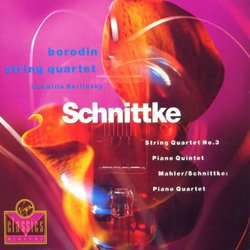 | Schnittke, Mahler, Borodin String String Quartet 3 / Piano Quintet / Piano Quartet Genre: Classical
|
Larger Image |
CD DetailsSimilarly Requested CDs |
CD ReviewsA Lot More Exciting Than Wagner Giordano Bruno | Wherever I am, I am. | 07/01/2008 (5 out of 5 stars) "By constructing his Third String Quartet around the screwball tone-row theme of Beethoven's "Grosse Fuge," which by no accident is also the transposed musical motto of Dmitri Shostakovich, Alfred Schnittke (1934-1998) stakes claim to the idea that music itself can be the subject of music. This is hardly a post-modernist manifesto, however; composers have always borrowed themes, from the troped liturgy of Perotin to the chanson-based masses of Josquin, to Beethoven himself and on into recent times. Schnittke was the heir to Shostakovich in style and in greatness, as shown by his frequent musical allusions and his penchant for composing in the same forms - quartets and piano quintets especially. Hence one might say that Schnittke is the grandchild of Mahler, in sensibilities as well as greatness. The Piano Quartet on this CD is a realization of an unfinished piece by Mahler; only the scherzo is fully Schnittke's work. Schnittke is known for his habit of incorporating bits of older music and allusions to other composers in his pieces, but "music about music" is not the core of Schnittke's work. Like Shostakovich, Schnittke sought an emotional resonance in every note he wrote. Characteristically his music travels from stark abstraction through thickets of chromaticism and freaky instrumental timbres toward melodic transfiguration into clarity and calm. Many listeners have described Schnittke's music as bleak, somber, agonized. Perhaps all modern music sounds agonized to neophytes. Frankly, I hear more comfort than pain, more light than shadow, in these compostions, including the Piano Quintet, which was dedicated to the composer's mother and plainly memorializes sorrow at her death. The Borodin String Quartet performs these three pieces with profound understanding of their emotional range; they do so through profound understanding of the tonal reach of their fiddles, from icy bridge tones to gruff mid-string tones which sound like human voices mourning. Pianist Ludmilla Berlinsky achieves a matching spectrum of affective tone on the Piano Quintet, playing both dynamic poles of her pianoforte. The delicate piano ostinato that concludes the quintet is one of the most beautiful effects in modern music. Schnittke was as great a composer as the second half of the 20th Century produced. If you know his work, you'll love this performance of the Piano Quintet especially. If you've never heard him, this CD is an excellent first choice." The Quintet villegem | canada | 12/30/2004 (5 out of 5 stars) "If this recording features as I think it does the Borodin string quartet and Berlinky's daughter at the piano, this is the re edition of a virgin classics masterpiece, not to be missed!
The quintet is purely riveting in this interpretation. The Borodine string quartet is incredibly precise and makes this interpretation the reference. I would anyway avoid Kronos on any Schnittke piece: their lack of humour, their attitude closes this music instead of opening it." |

 Track Listings (10) - Disc #1
Track Listings (10) - Disc #1